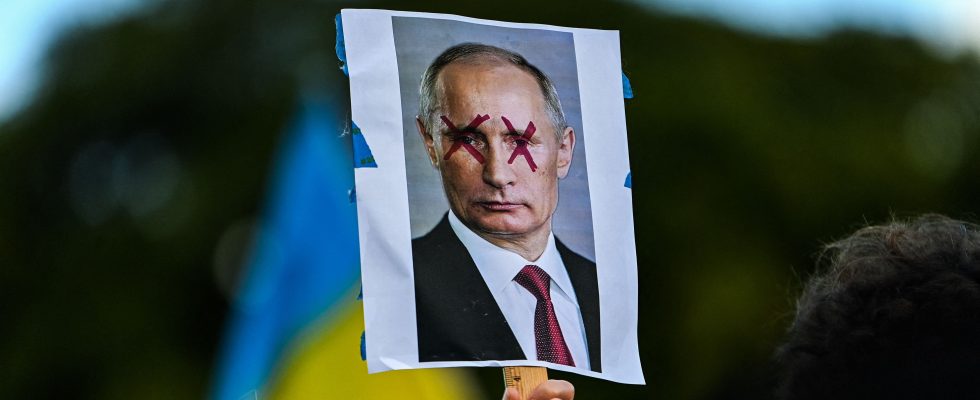What to do in the face of Vladimir Putin’s re-election, a foregone conclusion? Despite its powerlessness in the face of the electoral process controlled with an iron fist by the Kremlin, the Russian opposition has not said its last word. Dissident circles have imagined collective action so that Russians can demonstrate their anger and disagreement with the regime: go to all polling stations on Sunday March 17 (the third and last day of the presidential election), at noon, and vote against Putin.
“The aim of the action is to show Putin, the elites, the security forces, the whole world, but first of all ourselves, that the tsar is alone! specifies website “Noon against Putin”, created for the occasion – and blocked in Russia since the beginning of March. We are more numerous and stronger than we seem. We can destroy the illusion of popular support for Putin, overcome despair, find the strength to resist further.”
Coordinated action
This idea was first suggested by Maxim Reznik, a former member of parliament from St. Petersburg, now in exile. “I emigrated with one goal: to fight Putin’s fascism. […] I thought long and hard about a method to inflict maximum damage,” he explains. to independent Russian media Kholod. He and his colleagues in the “European Petersburg” movement agreed to find an idea that “would suit everyone” – because calling to vote for this or that candidate would have contributed to dividing the opposition and calling for demonstrations would have endangered the participants, immediately repressed. “You may not have a candidate to vote for, but the noon hour will always exist,” summarizes Maxim Reznik.
The idea was taken up by the main circles of the opposition in exile: the “Antiwar Committee” of the former oligarch Mikhail Khodorkovsky, the “Free Russia” foundation, prominent opposition figures and even rejected candidates of the presidential election, Ekaterina Dountsova and Boris Nadezhdine. Everyone campaigned on their social networks to meet voters at the polls this March 17 at noon, whether they are in Russia or in exile.
The movement took on a new dimension when Yulia Navalnaya, wife of the opponent Alexeï Navlany who died in prison on February 16, relayed the initiative in a Youtube video on March 6. “We can use these so-called ‘elections’ against Putin to achieve our goal […]to show that we exist and that there are many of us,” she said.
Like explanatory manuals, the opposition media relay their instructions to voters: they can vote for a candidate other than Vladimir Putin, check several candidate boxes so that the vote is canceled, tear up the ballot paper or write the name of a non-candidate person. Many plan to include the name of Alexeï Navalny. But above all, it is suggested that they take videos and photos of their act and share them as much as possible: because this is the media impact of the action which takes place on March 17.
Massive frauds
All are calling on voters not to register for remote electronic voting, permitted for the first time during a presidential election in 29 regions of Russia, including in the capital, Moscow. Logistics “which allows massive fraud”, according to a report of the electoral monitoring organization Golos, because “there is no guarantee of monitoring of remote electronic votes, nor of freedom of voting”.
As in every election, citizens will vote under pressure from their employer or the authorities, and particularly state civil servants, called “budgetniki”. They are often forced to send a photo of their report card with the correct box checked (that of the president) to their employer, under penalty of sanctions at work, or even dismissal. Their presence in front of the polling stations at noon on March 17 will perhaps be their only outlet.
According to a well-informed journalist from independent Russian media Meduza, “the Kremlin is confident that this action will not have a noticeable impact on the main election result and Putin’s score.” But this Thursday, March 14, on the eve of the start of the vote, the Moscow authorities banned the “Noon against Putin” demonstrations, describing future gatherings… “illegal acts in preparation containing signs of extremist activities”! For her part, Maria Andreeva, an activist for the return of Russian soldiers mobilized in Ukraine who had rescheduled the meeting on March 17 at 12 p.m., received a warning from the prosecutor’s office of the northwest district of Moscow. Proof that in Russia, power seems more feverish than it wants to say.
.
